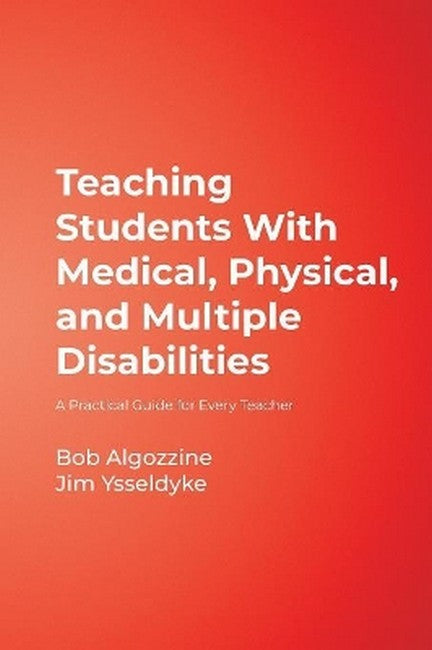Bob Algozzine is a professor in the Department of Educational Leadership at the University of North Carolina and project codirector of the U.S. Department of Education-supported Behavior and Reading Improvement Center. With 25 years of research experience and extensive firsthand knowledge of teaching students classified as seriously emotionally disturbed, Algozzine is a uniquely qualified staff developer, conference speaker, and teacher of behavior management and effective teaching courses. He is active in special education practice as a partner and collaborator with professionals in the Charlotte-Mecklenburg schools in North Carolina and as an editor of several journals focused on special education. Algozzine has written more than 250 manuscripts on special education topics, including many books and textbooks on how to manage emotional and social behavior problems. Jim Ysseldyke, Ph.D., is Birkmaier Professor in the Department of Educational Psychology, director of the School Psychology Program, and director of the Center for Reading Research at the University of Minnesota. Widely requested as a staff developer and conference speaker, Ysseldyke brings more than 30 years of research and teaching experience to educational professionals around the globe. As the former director of the federally funded National Center on Educational Outcomes, Ysseldyke conducted research and provided technical support that helped to boost the academic performance of students with disabilities and improve school assessment techniques nationally. Today, he continues to work to improve the education of students with disabilities. The author of more than 300 publications on special education and school psychology, Ysseldyke is best known for his textbooks on assessment, effective instruction, issues in special education, and other cutting-edge areas of education and school psychology. With A Practical Approach to Special Education for Every Teacher, Ysseldyke seeks to equip educators with practical knowledge and methods that will help them to better engage students in exploring-and meeting-all their potentials.
Request Academic Copy
Please copy the ISBN for submitting review copy form
Description
About A Practical Approach to Special Education for Every Teacher Acknowledgements About the Authors Self-Assessment I Introduction to Teaching Students With Medical, Physical, and Multiple Disabilities 1.What Are Medical Disabilities? Identification of Medical Symptoms Prevalence of Medical Disabilities "Other" Health Impairments Special Health Problems Medically Fragile and Technology Dependent Groups 2.What Are Physical Disabilities? Orthopedic Impairments Specific Impairments Neurological Disorders Traumatic Brain Injury Autism 3.What Are Multiple Disabilities? 4.What Characteristics Are Associated With Medical, Physical, and Multiple Disabilities? Cognitive Academic Physical Behavioral Communication 5. What Should Every Teacher Know About Teaching Students With Medical, Physical, and Multiple Disabilities? Identifying Disabilities Asking Questions Identifying Key Areas of Assistance Adapting Instruction Facilitating Communication Fostering Independence 6.Medical, Physical, and Multiple Disabilities in Perspective Selecting Home vs. Institutional Care Supporting Inclusion 7. What Have We Learned? Key Points Key Vocabulary Self-Assessment II Answer Key for Self-Assessments On Your Own Resources Books Journals & Articles Organizations Reference Index

